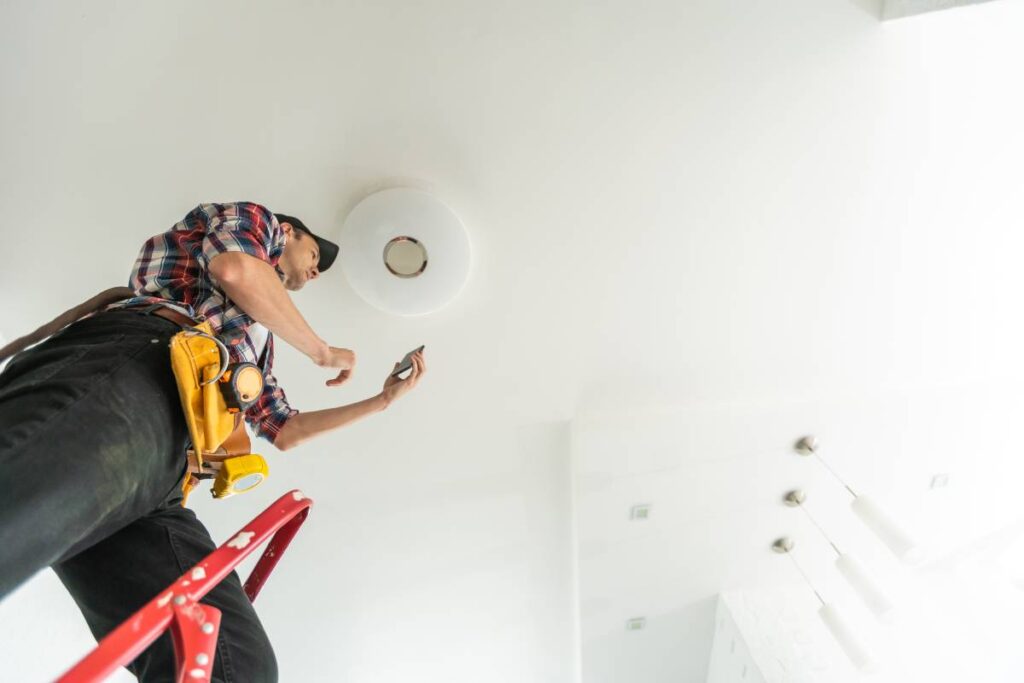Reasons Why You Shouldn’t Startle Yourself Awake in the Middle of the Night?

Sleep is one of the most essential components of our well being, allowing our body and mind to rest, heal, and regenerate.
For most of us, a full night of uninterrupted sleep is the goal, but many find themselves waking up in the middle of the night whether it’s due to stress physical discomfort or simply an internal sleep cycle.
This common occurrence often leaves people wondering: is it unhealthy to wake up in the middle of the night? Does it ruin the quality of our sleep, or is it simply a part of the natural sleep process?
Furthermore, how can we get back to sleep after an unexpected wake-up, so we don’t start the day feeling groggy and unrested?
In this article, we will explore the effects of waking up during the night, how it impacts our health and sleep quality, and provide practical strategies for returning to a peaceful slumber.
Is It Unhealthy to Wake Up in the Middle of the Night?
Waking up in the middle of the night is normal and doesn’t necessarily indicate a health problem. It’s common to briefly wake up at the end of a sleep cycle and fall back asleep easily.
However, if you wake up frequently or have trouble getting back to sleep, it could be a sign of conditions like sleep apnea or anxiety, which can disrupt restorative sleep.
If this happens often, it’s a good idea to consult a doctor, as it could affect both mental and physical health in the long term.
Is My Sleep Ruined If I Wake Up in the Middle of the Night?
Waking up in the middle of the night doesn’t necessarily ruin your sleep, especially if you can fall back asleep easily. The problem arises if you wake up frequently and have difficulty going back to sleep, or if you stay awake for long periods.
Waking up during the night can be a natural part of the sleep cycle, especially in lighter stages of sleep, and if you fall back asleep quickly, your body will still benefit from restorative sleep.
Ultimately, whether your sleep is affected depends on how refreshed and well rested you feel in the morning. If you consistently wake up tired or unable to concentrate, it may be time to evaluate your sleep habits.
How to Get Back to Sleep After Waking Up in the Night?
Waking up in the middle of the night can be frustrating, especially if you have difficulty falling back asleep.
Fortunately, there are several strategies that can help you get back to sleep more easily and improve the quality of your sleep.
To sleep better at night, try using relaxation techniques, adjusting your sleep environment, and changing your bedtime routine. These changes can help you fall asleep more easily and get a more restful night.
Stay Calm and Avoid Looking at the Clock
When you wake up in the middle of the night, stay calm and avoid stressing about falling back asleep. Don’t check the clock, as it can increase anxiety.
Instead, focus on relaxing and clearing your mind. Don’t think about the next day or how tired you might feel, as staying calm will signal your brain that it’s time to sleep again.
Use Relaxation Techniques
If you’re unable to fall back asleep, try relaxation techniques like deep breathing, progressive muscle relaxation, or visualization.
Deep breathing helps calm your nervous system by slowly inhaling, holding, and exhaling for four counts. Progressive muscle relaxation involves tensing and relaxing muscle groups from your toes to your head to release tension.
Visualization can also help by imagining a peaceful place and focusing on sensory details to calm your mind.
Avoid Stimulants and Bright Screens
If you wake up at night, avoid using your phone or electronic devices as the blue light can disrupt melatonin production.
Instead, read a book with soft light or listen to calming music. Also, avoid caffeine, alcohol, or nicotine before bed, as they can disturb your sleep and increase nighttime awakenings. Try reducing or eliminating these substances from your evening routine.
Create an Optimal Sleep Environment
Ensure that your bedroom is conducive to sleep. Make sure the room is dark, quiet, and cool. You can use blackout curtains to block out any light or a white noise machine to mask any disruptive sounds. A comfortable mattress and pillow are also essential for promoting restful sleep.
If you wake up and can’t get back to sleep after 20-30 minutes, consider getting out of bed and doing a quiet activity, such as reading or stretching.
Avoid engaging in activities that are mentally stimulating or stressful, as this can make it even harder to fall back asleep.
Keep a Consistent Sleep Schedule
Maintaining a consistent sleep schedule, where you go to bed and wake up at the same time every day, can help regulate your internal body clock and improve the quality of your sleep.
When your sleep patterns are predictable, it becomes easier for your body to stay asleep throughout the night.
Conclusion
Waking up in the middle of the night is common and usually doesn’t affect your overall health or sleep quality.
However, frequent awakenings or difficulty returning to sleep can signal sleep fragmentation, which may disrupt restorative sleep.
If this happens, try relaxation techniques and create an optimal sleep environment. If sleep disruptions persist, consult a healthcare professional.
Ultimately, the key is whether you can fall back asleep and feel refreshed in the morning. Healthy sleep habits can improve your chances of a restful night and rejuvenated mornings.














































